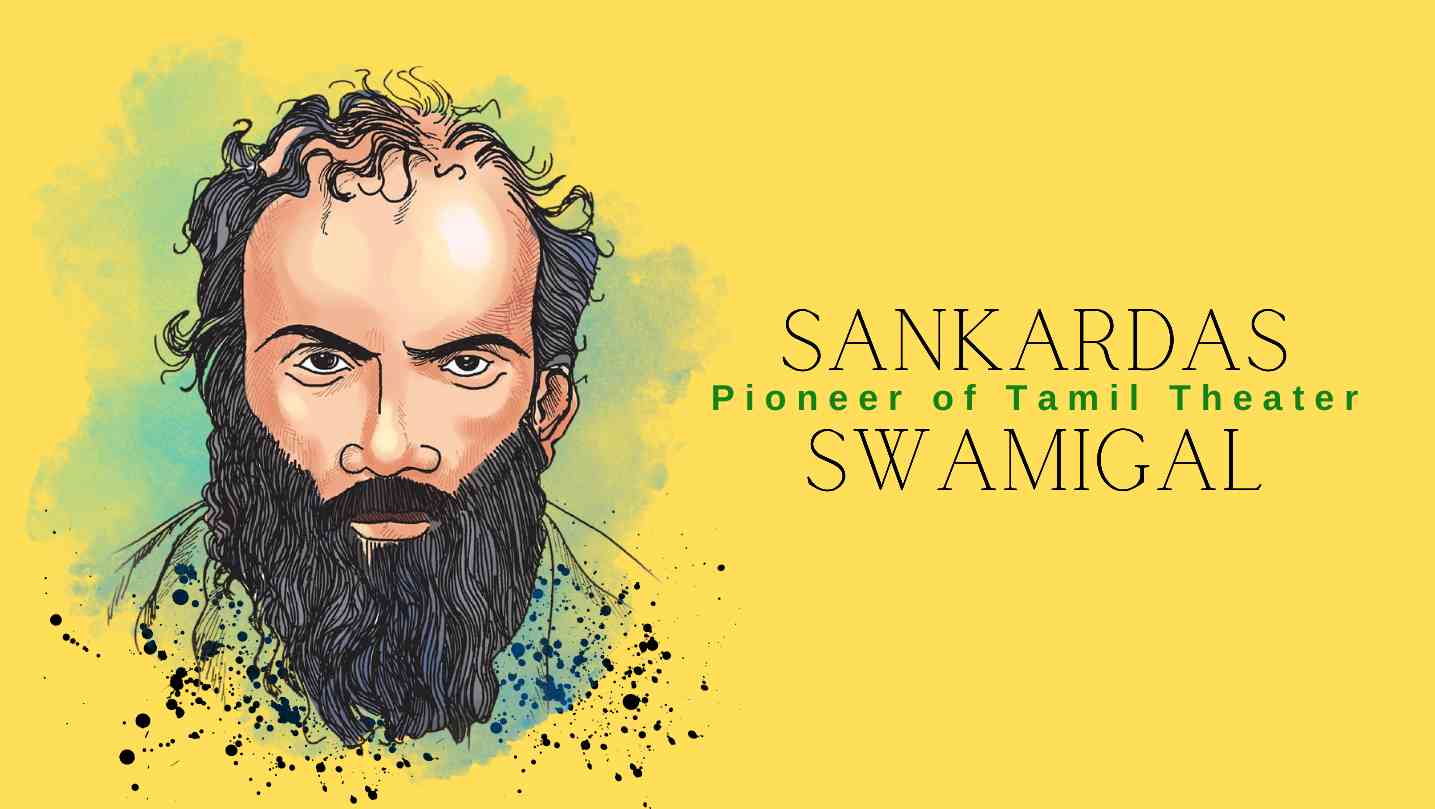
Sankaradas Swamigal(1867-1922)
T. T. Sankaradas Swamigal, a multifaceted figure encompassing the roles of playwright, director, manager, actor, and composer, is hailed as the bridge connecting traditional performance arts with twentieth-century Tamil theater. Born in 1867 in the busy port town of Tuticorin to Damodaran Pillai and Kanthimathi Ammal, Sankardas Swamigal inherited his father's linguistic prowess, earning him the moniker "Ramayana Pulavar" due to his mastery of the epic Ramayana.
Initiated into the intricacies of Tamil language by his father and later mentored by the renowned Tamil scholar Palani Dandapani Swamigal, Sankardas Swamigal's journey took a turn when he worked briefly as an accountant in a salt factory. Realizing that this occupation hindered his pursuit of linguistic excellence, he abandoned the job at the age of twenty-four, laying the foundation for his remarkable entry onto the Tamil stage.
Recognizing Swamigal's literary talents, Ramudu Iyer and Kalyanarama Iyer, who operated a prominent drama company, welcomed him as an actor and subsequently, an author. His theatrical repertoire featured diverse roles, including Iranian, Ravana, Lord Yama, and Lord Saneeswara. However, a disagreement with Samy Naidu led him to embrace an ascetic life, embarking on a pilgrimage to various shrines dedicated to Lord Muruga, adopting the name Sankaradas Swamigal.
A pivotal juncture in Swamigal's life involved his association with the renowned Kanjira exponent, Manpoondia Pillai, who regarded him as an adopted son. This partnership showcased Swamigal's linguistic prowess, with Manpoondia Pillai accompanying him on the Kanjira during sessions. Swamigal's subsequent return to the Tamil stage, at Manpoondia Pillai's behest, marked a prolific period, affiliating with drama companies such as Valli Vaidyanatha Iyer and Alli Parameswara Iyer's and P.S. Velu Nair's Shanmukananda Sabha.
Establishing his own drama troupe, the Samarasa Sanmarga Nataka Sabha in 1910, Swamigal played a pivotal role in shaping the talents of emerging actors, including the legendary S.G. Kittappa. Embracing the concept of "Boys Company," Swamigal contributed to the Gurukula-style training of future theater and cinema luminaries like Nawab T.S. Rajamanickam, M.R. Radha, S.V. Venkatraman, and K. Sarangapani.
In 1918, Swamigal, with the support of friends, founded the Tattva Meenalochani Vidwat Bala Sabha, where T.S. Kannuswamy Pillai entrusted his sons—T.K. Sankaran, T.K. Muthuswamy, and T.K. Shanmugam—to Swamigal's tutelage. Despite facing health challenges in 1921, Swamigal's commitment to Tamil theater persisted, and he continued attending performances until his passing on November 13, 1922, in Pondicherry.
Years later, T.K. Shanmugam's efforts led to the construction of a memorial for Swamigal in Pondicherry. Today, the South Indian Artistes Association honors this trailblazing figure with the Sankardas Swamigal Auditorium, acknowledging his role in shaping the earliest legends of the industry."
 Dakshinamurthy is a scholar and researcher of Indic themes and a contributing writer of The Verandah Club
Dakshinamurthy is a scholar and researcher of Indic themes and a contributing writer of The Verandah Club
NEXT ARTICLE